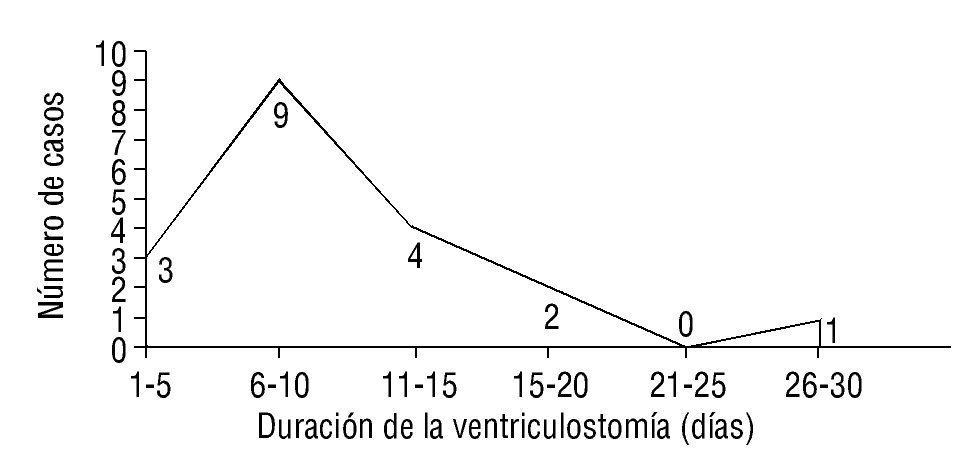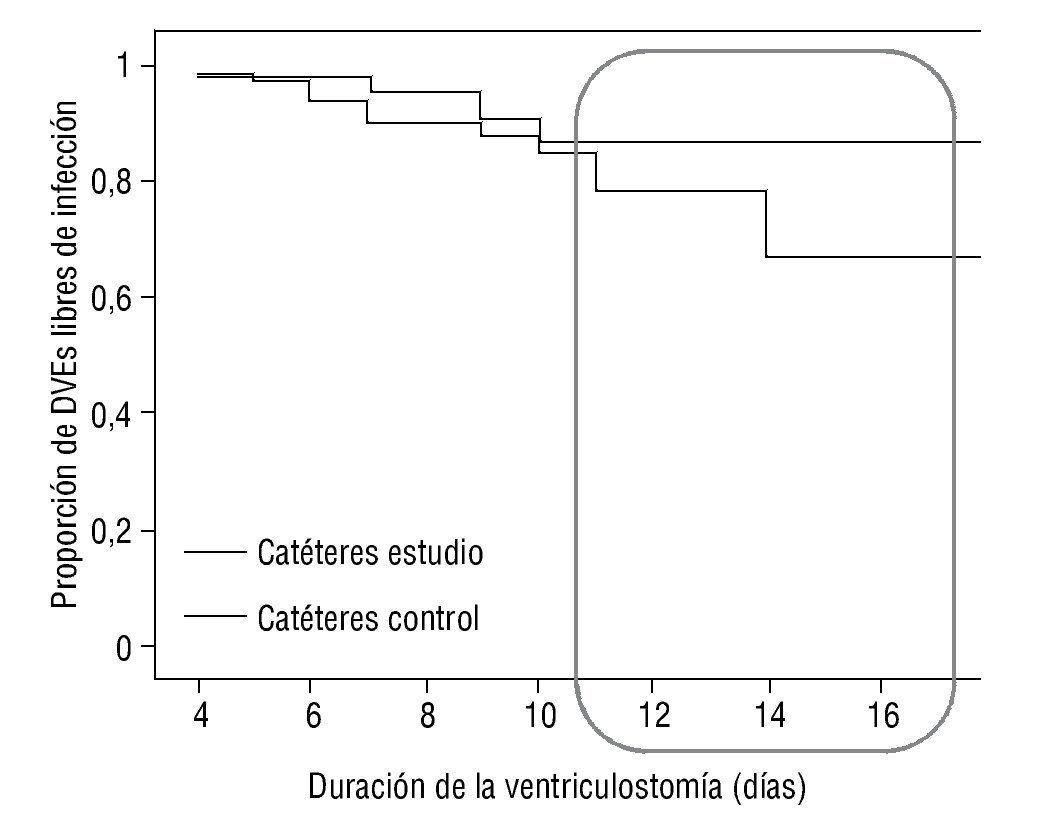Desde el vendaje craneal, utilizado en el siglo XVI como uno de los primeros tratamientos de la hidrocefalia, hasta las derivaciones del líquido cefalorraquídeo (LCR) de última generación, los avances realizados en el tratamiento de la hidrocefalia, y particularmente en la cirugía derivativa del LCR, han sido continuos. Sin embargo, y a pesar de los esfuerzos realizados, la infección continúa siendo en el momento actual la complicación más seria y frecuente. Una de las medidas de prevención más actuales es la utilización de catéteres impregnados con antibiótico. Con el objetivo de analizar su efecto real en nuestro medio se ha diseñado un estudio retrospectivo de cohortes que incluye procedimientos con derivaciones internas y externas. Los resultados obtenidos demuestran que los catéteres impregnados con rifampicina y clindamicina son una herramienta útil frente a la infección secundaria a las derivaciones de LCR.
Progress in the treatment of hydrocephalus and particularly of cerebrospinal fluid (CSF) diversion surgery has been continuous and significant from cranial bandaging, which was one of the initial hydrocephalus treatments in the 16th century, to last-generation CSF shunts. However, infection currently remains the most frequent and serious complication despite the efforts made to prevent it. One of these current prevention measures is the use of antibiotic-impregnated catheters. A retrospective cohort study including shunts and external ventricular drains was designed to assess their efficacy in our scenario. The results show that rifampicin- and clindamycin-impregnated catheters are a helpful tool against CSF shunt-derived infection.
Article

If it is the first time you have accessed you can obtain your credentials by contacting Elsevier Spain in suscripciones@elsevier.com or by calling our Customer Service at902 88 87 40 if you are calling from Spain or at +34 932 418 800 (from 9 to 18h., GMT + 1) if you are calling outside of Spain.
If you already have your login data, please click here .
If you have forgotten your password you can you can recover it by clicking here and selecting the option ¿I have forgotten my password¿.











